15 X 20M ISO 6 Hardwall Cleanroom
Reference Price:US$60000.00-75200.00





Cleanroom
15 X 20M ISO 6 Hardwall Cleanroom
Choose your installation & validation options below
Quantity:
Choose your Cleanroom frame structure material
Quantity:
Choose your Cleanroom Wall enclosure materials
Quantity:
Choose your Temperature requirements
Quantity:
Choose your humidity requirements
Quantity:
Choose your Explosion-proof requirements
Quantity:
Summary
15 X 20M ISO 6 Hardwall Cleanroom
Validation
Installation & Validation
Find Similar Products
-

10 x 20M ISO 6 Hardwall Cleanroom
US$5000-19000 USD/Set
Min. Order:1 Set -

10 x 15M ISO 6 Hardwall Cleanroom
US$5000-19000 USD/Set
Min. Order:1 Set -

10 x 10M ISO 6 Hardwall Cleanroom
US$5000-19000 USD/Set
Min. Order:1 Set -

8 x 15M ISO 6 Hardwall Cleanroom
US$5000-19000 USD/Set
Min. Order:1 Set -

8 x 10M ISO 6 Hardwall Cleanroom
US$5000-19000 USD/Set
Min. Order:1 Set -

5 x 10M ISO 6 Hardwall Cleanroom
US$5000-19000 USD/Set
Min. Order:1 Set
Cleanrooms Detail
A 2 x 3 meter ISO 6 hardwall cleanroom is a compact, controlled environment designed to meet the cleanliness standards of ISO 14644-1, offering an ideal solution for processes that require moderate contamination control. Constructed with durable, rigid hardwall panels, it provides enhanced structural integrity and minimizes particle contamination. Equipped with HEPA filtration, it ensures clean air with a particle count of no more than 35,200 particles per cubic meter.

Key Features of an ISO 6 Cleanroom
Particle Count: Limits the concentration of particles larger than 0.5 microns to no more than 35,200 particles per cubic meter of air.
Air Changes per Hour (ACH): Requires a minimum of 150 air changes per hour to maintain cleanliness and remove airborne contaminants effectively.
Airflow: Typically uses unidirectional (laminar) airflow to reduce particle contamination and ensure a consistent clean environment.
Materials: Constructed with durable, non-porous materials like steel or composite panels to minimize particle shedding and ensure ease of cleaning.
Hardwall Cleanroom Specification
| No | Item | Data | Optional |
| 1 | Product | Clean room | The price needs to be re-calculated |
| 2 | Size | L5.3m*W3.5m*H2m | Yes |
| 3 | Cleanliness | 1000class | 10/100/10000 class |
| 4 | Wall | Antistatic pvc grid curtain | Acrylic or toughened glass |
| 5 | Door | Pvc soft curtain | Acrylic or toughened glass |
| 6 | Frame | Aluminium 5050 | Stainless steel |
| 7 | FFU | 1175*575*320MM / Aluminium zinc /6 sets | Stainless steel |
| 8 | Purified lamp | 15W /8Pcs | Quantity |
| 9 | Voltage | AC 220V/50hz | Yes |
Cleanrooms Airflow
To maintain ISO 5 classification, the following criteria must be met:

Particle Concentration Limits (per cubic meter of air)
0.5 microns: ≤ 3,520 particles
5 microns: ≤ 0.1 particles (the particle count drops significantly for larger particles)
Class 100 (in U.S. classification): ISO 5 cleanrooms are often referred to as Class 100 cleanrooms in the U.S. classification system.
Airflow Design
Laminar or Unidirectional Airflow: To maintain the cleanliness, air must flow in a uniform direction, typically from ceiling to floor, with minimal turbulence to prevent particles from settling.
HEPA or ULPA Filters: Air is filtered through High-Efficiency Particulate Air (HEPA) or Ultra-Low Penetration Air (ULPA)filters that capture particles down to 0.3 microns or smaller. ULPA filters provide even higher efficiency, capturing particles down to 0.12 microns.
Cleanrooms Installation
Environment Preparation
Frame Assembly
Filter and Fan Installation
Commissioning
Cleanrooms Testing

-
Air Supply and Exhaust Volume Testing
-
Airflow Control Inspection
-
Inspection Instruments and Equipment
-
Testing Standards and Criteria
-
Testing Steps and Processes
FAQ
1. How do you select the right contractor for building an ISO 6 Cleanroom?
Choose a contractor with proven expertise in ISO 6 cleanroom construction, verified certifications (e.g., ISO 14644 compliance), and a portfolio of similar projects. Assess their ability to integrate specialized HVAC systems, airtight materials, and contamination control protocols. Prioritize contractors offering post-construction validation and maintenance support.
2. What is the design process for an ISO 6 Hardwall Cleanroom?
The design process begins with defining operational requirements, such as airflow patterns, equipment layout, and material compatibility. Engineers use computational modeling to optimize HVAC systems for unidirectional airflow and pressure differentials. Hardwall panels, HEPA filtration, and seamless flooring are selected to meet ISO 6 particle count limits (≤35,200 particles/m³ for ≥0.5µm).
3. How do you design airflow systems in an ISO 6 Cleanroom?
Airflow systems in ISO 6 cleanrooms use a combination of laminar airflow and high air exchange rates (typically 90–180 changes per hour). HEPA filters are strategically placed to maintain unidirectional flow, minimizing turbulence. Pressure differentials between adjacent zones prevent cross-contamination, while return air systems balance efficiency and energy consumption.
4. How does an ISO 6 Hardwall Cleanroom improve production efficiency?
By maintaining controlled particle levels, ISO 6 cleanrooms reduce product defects and downtime caused by contamination. Hardwall designs allow flexible reconfiguration for evolving workflows. Consistent environmental conditions also enhance equipment reliability and staff productivity.
5. How does a cleanroom’s design affect its performance?
Design choices—such as airflow velocity, material smoothness, and equipment placement—directly impact particle control and contamination risks. Poorly planned layouts create dead zones or turbulence, while optimal designs ensure uniform air distribution and compliance with ISO standards.
6. How do you optimize space usage in an ISO 6 Cleanroom?
Use modular hardwall panels to create adaptable zones tailored to equipment and workflow needs. Vertical space is maximized with overhead HVAC systems, while compact furniture and recessed storage minimize floor clutter. Simulations during planning identify inefficiencies in spatial flow.
7. How do you prevent cross-contamination in an ISO 6 Cleanroom?
Implement strict gowning protocols, airlocks, and segregated material pathways. Pressure cascades (higher pressure in cleaner zones) prevent airborne contaminants from entering critical areas. Regular cleaning and real-time particle monitoring further mitigate risks.
8. What is the ideal flooring material for an ISO 6 Hardwall Cleanroom?
Seamless epoxy or vinyl flooring is preferred for its non-porous, static-resistant properties. These materials withstand frequent cleaning, resist chemical spills, and eliminate crevices where particles could accumulate. Conductivity options may be used for ESD-sensitive environments.
9. How is air filtration efficiency measured in an ISO 6 Cleanroom?
HEPA filters are tested via DOP (Dispersed Oil Particulate) or MPPS (Most Penetrating Particle Size) methods to verify ≥99.97% efficiency at 0.3µm. Regular in-situ testing ensures filters maintain performance, while particle counters validate air quality during operational audits.
10. How do you manage waste in an ISO 6 Hardwall Cleanroom?
Waste is collected in sealed, contamination-resistant containers and removed via dedicated pass-throughs or airlocks. Procedures include decontaminating waste surfaces and scheduling disposal during non-critical operations to minimize airflow disruption.
11. What is the role of a cleanroom operator in an ISO 6 Cleanroom?
Operators monitor environmental parameters (particle counts, temperature, humidity), enforce gowning protocols, and perform routine cleaning. They also log deviations, coordinate maintenance, and ensure compliance with ISO 14644-1 standards during production.
12. How does an ISO 6 Hardwall Cleanroom differ from other cleanrooms?
ISO 6 cleanrooms permit higher particle limits than ISO 5 or lower classes but require fewer air changes than ISO 7. Hardwall designs offer greater durability and isolation compared to softwall cleanrooms, making them suitable for medium-critical applications like pharmaceuticals or electronics.
13. What are the different classifications of cleanrooms?
Cleanrooms are classified from ISO 1 (strictest) to ISO 9 (least strict) based on maximum allowable particle counts. ISO 6 allows ≤35,200 particles/m³ (≥0.5µm), balancing cost and control for applications like medical device manufacturing or certain biotech processes.
14. What types of cleanroom testing are required for ISO 6 certification?
Testing includes airborne particle counts, airflow velocity/volume, pressure differential checks, and HEPA filter integrity tests. Additional assessments may involve temperature/humidity stability, recovery testing, and microbial monitoring if applicable.
15. How is contamination controlled during cleanroom construction?
Construction zones are isolated with temporary barriers, and workers use anti-static attire and tools. Materials are cleaned before installation, and phased construction ensures completed sections remain sealed. Air quality is monitored continuously to detect breaches.
16. How is cleanliness verified after the construction of an ISO 6 Hardwall Cleanroom?
Post-construction,Third-party certification bodies conducts particle counting tests under "as-built" or "at-rest" conditions. Airflow uniformity, filter leaks, and surface swab tests are performed. Documentation is reviewed to confirm adherence to ISO 14644-1:2015 protocols.
Factory Production Workshop Video
Factory Photo
Product Packaging And International Logistics
Product International Certification

Find Other Common Equipment Recommendations
-

Modular CleanRoom
US$9000-10000 USD/Unit
Min. Order:1 Set -

Air Shower
US$1000.00-5000.00 USD/Unit
Min. Order:1 Set -

Downflow Booth
US$3000-6000 USD/Unit
Min. Order:1 Set -

Clean bench
US$600-2000 USD/Unit
Min. Order:1 Set -

Air Filter
US$3-50 USD/Unit
Min. Order:1 Set -

Cleanroom Wall Panels
US$10-20 USD/sq.
Min. Order:1 Set -
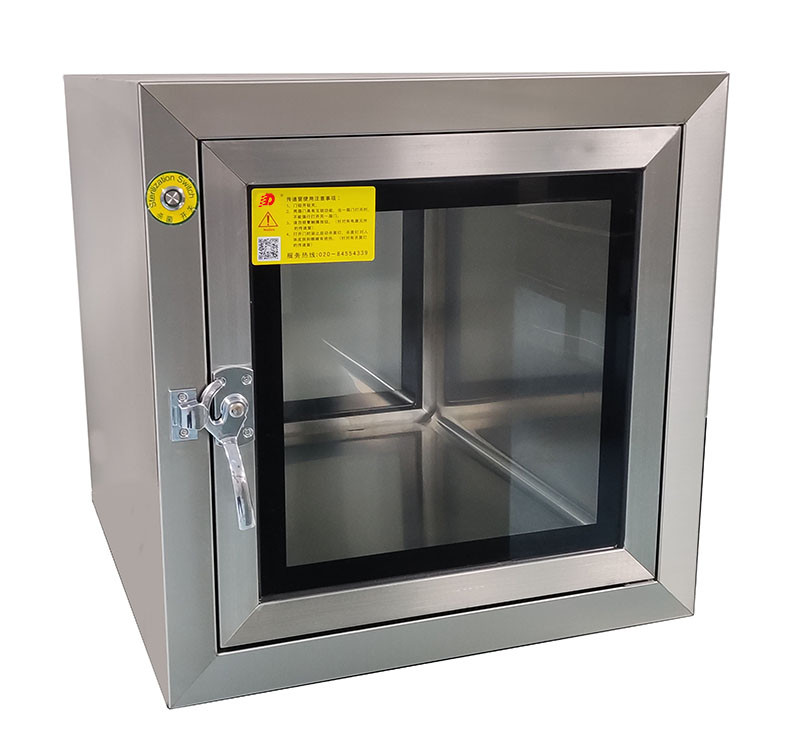
Pass Box
US$200-500 USD/Unit
Min. Order:1 Set -
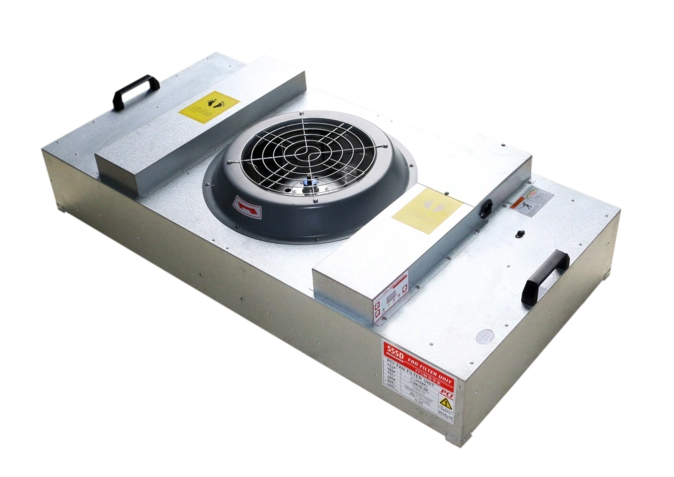
FFU
US$135-350 USD/Unit
Min. Order:1 Set -
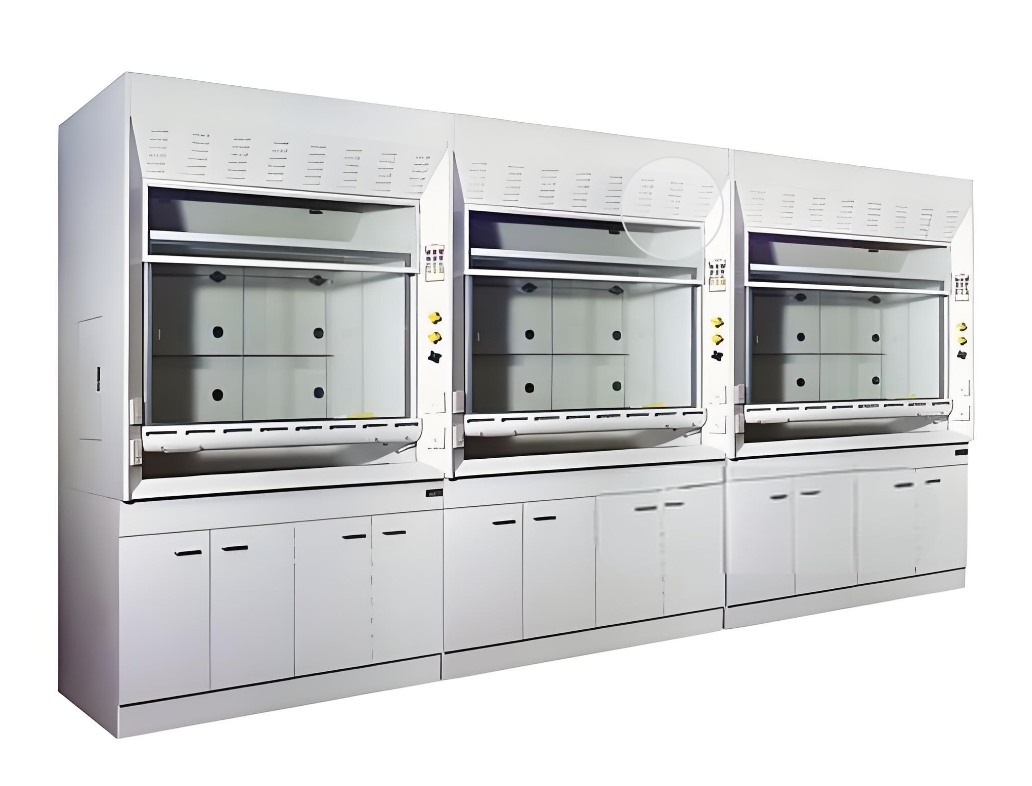
Fume Hood
US$700-1500 USD/Unit
Min. Order:1 Set -
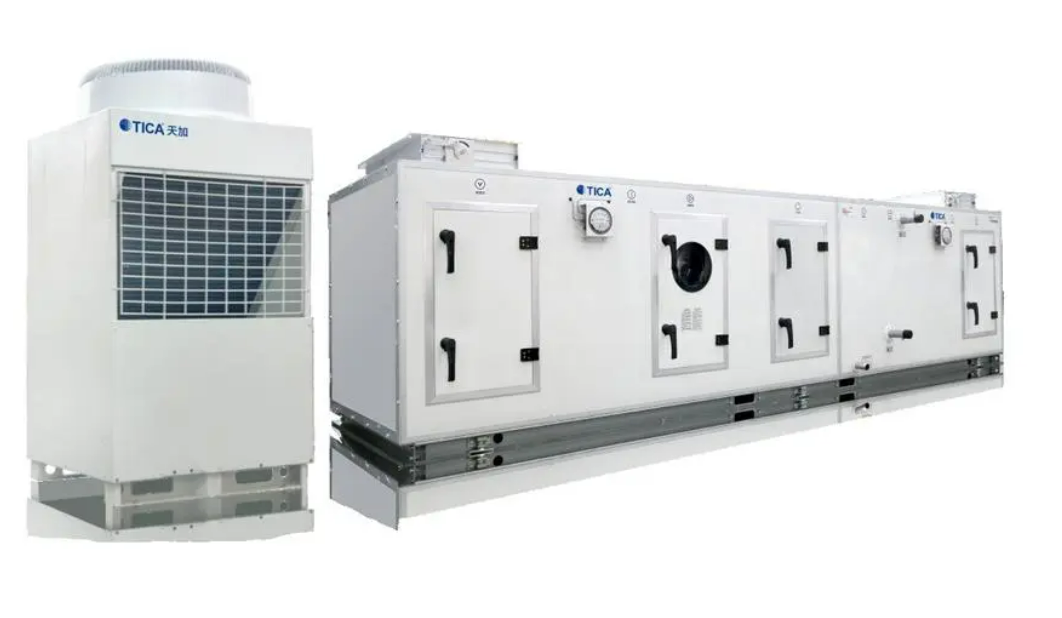
Cleanroom HVAC
US$5000-20000 USD/Unit
Min. Order:1 Set -
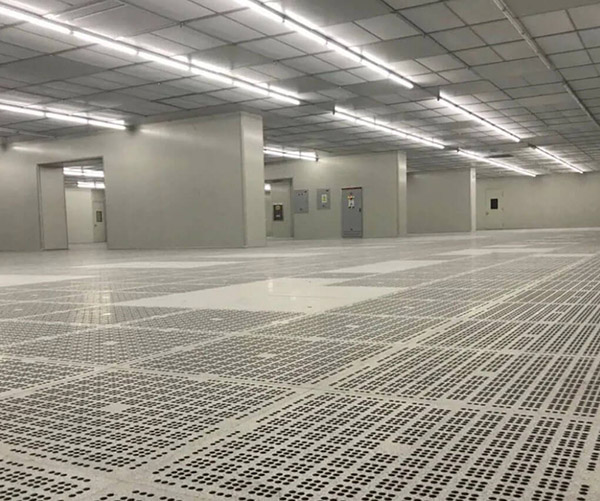
Clean room floor
US$5-20 USD/Sq.
Min. Order:1 Set -
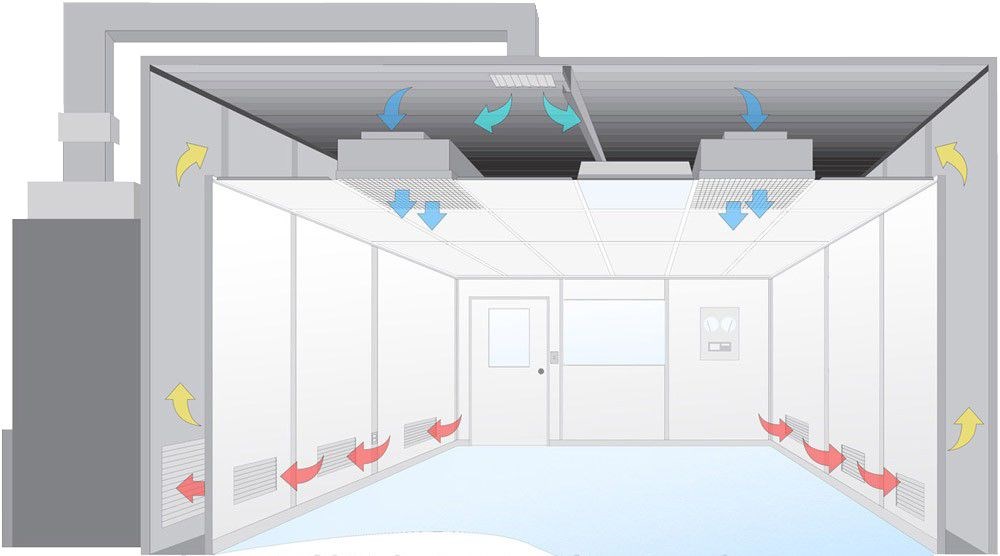
Clean room ceiling
US$
Min. Order:1 Set
 +86 18186671616
+86 18186671616 Jason@cleanroomequips.com
Jason@cleanroomequips.com
 MENU
MENU














